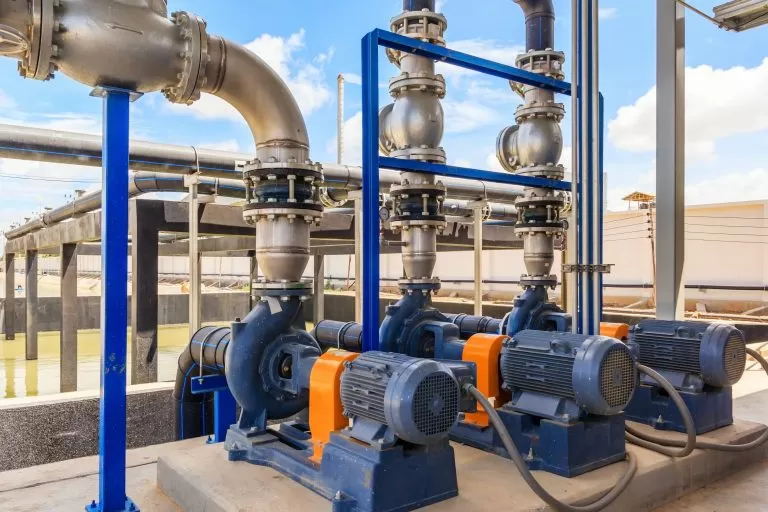Check out our White Paper Series!
A complete library of helpful advice and survival guides for every aspect of system monitoring and control.
1-800-693-0351
Have a specific question? Ask our team of expert engineers and get a specific answer!
Sign up for the next DPS Factory Training!

Whether you're new to our equipment or you've used it for years, DPS factory training is the best way to get more from your monitoring.
Reserve Your Seat Today
Remote monitoring helps lower risk and improve operations at wastewater treatment plants. The large physical footprint of wastewater treatment plants renders human monitoring costly and difficult.
By installing remote terminal units (RTUs) at the sites of important assets, managers gain insight into the real-time equipment and environmental conditions across their network.
Armed with constant knowledge of network conditions, managers can more accurately schedule maintenance, allocate resources, and respond to emerging situations. Furthermore, the data collected by the remote monitoring system can be analyzed to yield strategic insights, which can inform future investments. Remote monitoring in wastewater treatment plans, then, provides both immediate and long-term benefits for the overall operation.
Wastewater treatment plants depend on the continuous, networked operation of many large, expensive assets. The effectiveness of the treatment system relies on the performance of these assets, which include:
Each of these requires consistent, proactive maintenance to prevent degradation and performance failure. The ability to know when something is going wrong allows managers to stop it before it halts operations. Equipment downtime in wastewater management costs more in lost productivity and sequential failures to correct than it does to prevent if properly informed.
Remote terminal units are equipped with sensors able to detect important conditions, such as:
When a sensor detects a condition outside of a predetermined normal range, it sends an alert. In large systems, the volume of alerts would quickly overwhelm workers. So, once 10 or more RTUs are installed, the next step is to connect them to a single master station.
Master stations collect these alarms in a timestamped database and display real-time systems' information on a central computer screen. Management can monitor and see everything going on across the wastewater treatment facility in one place.
This improves the scheduling of routine maintenance, as well as responses to emerging conditions. The efficiency this enables helps free up budgetary resources for future investments, enabling further system optimization.
Remote terminal units can not only inform workers in a central location of problems across a wastewater treatment facility, but they can also provide some tools to help fix them.
Pre-programmed responses allow RTUs to take action when certain parameters are triggered, such as opening or closing valves depending on the flow rate. This simplifies ongoing management, freeing up human resources to tackle less routine, and more difficult problems.
The same control relays in RTUs which allow pre-programmed responses also give system monitors active options to adjust equipment. This can include:
Control relays provide wastewater facilities with the ability to operate their equipment with specificity and timeliness previously unavailable.
An additional benefit of remote monitoring systems is improved physical security. RTUs can be wired to motion sensors, door controls, or video cameras in mechanical plants, lift stations, or even manholes. This notifies security personnel of unauthorized access, improves their ability to identify perpetrators, and protects valuable equipment from theft, vandalism, or sabotage.
Tight municipal budgets leave no room for error when installing new monitoring capabilities. When planning to implement remote monitoring, it's essential to partner with a supplier who is available for support before and after they make the sale.
Before choosing a remote monitoring provider, ask for pre-sales field trials. Your partner should be able to demonstrate the usefulness of their remote monitoring tools before they are installed across a wastewater facility.
As plant employees will be tasked with operating and maintaining the system, it's likewise essential to find a supplier who offers comprehensive on-site training.
Regular factory training to help new employees learn and old employees refresh their skills should also be available at no cost.
If you have more than three individuals to train, it may be more efficient to hold the training at your facility in which case a quality partner should offer the opportunity to purchase on-site private training. And naturally, tech support for difficult or unexpected problems must also be offered.
Remote monitoring systems have a long working lifespan, up to a decade or more before requiring upgrades or replacement. To ensure support over the lifespan of the system, it's wise to seek out a partner with a long history of supplying and supporting remote monitoring in wastewater treatment plants.
The best indication of a provider's future longevity is often that same provider's proven history and willingness to offer pre-sales field trials, factory training, and tech support.
Remote monitoring systems provide significant benefits for wastewater treatment plants and systems like:
The right remote monitoring partner will support their customers before, during, and after they install their products.
DPS Telecom has a proven track record of remote monitoring success. We provide top-shelf equipment tailored to meet your facilities specific needs, and comprehensive training and support. To learn more, get a quote today!
Image courtesy Shutterstock